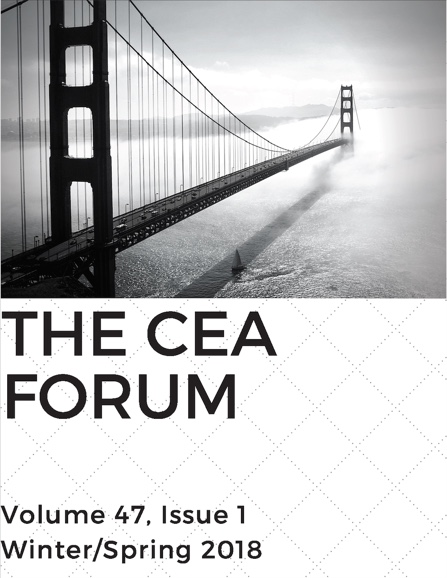Fumbling Toward Narrative?: Charles Dickens's _Sketches by Boz_ (1836-39) in the Literature-Film Adaptation Course
Keywords:
actualites, adaptation, Cruikshank, George (1792-1878), Dickens, Charles (1812-1870), film history, Griffith, D. W. (1875-1948), Lumiere, Louis and August, Melies, Georges (1861-1938), narrative, Porter, Edwin S. (1870-1941), _Sketches by Boz_ (1836-39)Abstract
In this essay, I discuss my use of Charles Dickens’s Sketches by Boz (1836-39) in my undergraduate Victorian literature and film class as a way of expanding the possibilities for teaching film with literature. Dickens’s first published book, Sketches by Boz, First Series (1836) is an anthology of essays, articles, journalistic ephemera, and short stories Dickens wrote as early as 1833 for a variety of periodicals. Sketches’s unfamiliarity to my students and its very strangeness as a book has the effect of destabilizing assumptions they might bring to a literature and film course, signaling from the outset that we will not proceed lockstep through a series of book-vs-adaptation comparisons with fidelity to the book providing the underlying metric. Moreover, Sketches by Boz in a film and literature course can provide a useful way of introducing students to film’s early history and discussing the issues it raises. The tentative, uneven process by which Dickens’s fragmentary journalistic sketches of the 1830s yielded to the full-length, sprawling novels for which he is famous furnishes a useful analogue to the process by which the early, fragmentary, non-narrative film entertainments of the 1890s would yield to such narrative works as Le Voyage dans la Lune (A Trip to the Moon) (1902) and The Great Train Robbery (1903), initially, and, later, the feature-length narrative films of D. W. Griffith—analogous historical arcs I like to call “fumbling toward narrative.” Generically indeterminate and often metanarrative while straddling the material formats of periodical journalism and published books, Dickens’s Sketches sets us up as a class for conversations about genre, narrative, and material media—ultimately allowing us to question the desirability of narrative in literature or in film.Downloads
Published
Issue
Section
License
Authors who publish with this journal agree to the following terms:
1. Authors retain copyright and grant the journal right of first publication with the work simultaneously licensed under a Creative Commons Attribution License that allows others to share the work with an acknowledgement of the work's authorship and initial publication in this journal.
2. Authors are able to enter into separate, additional contractual arrangements for the non-exclusive distribution of the journal's published version of the work (e.g., post it to an institutional repository or publish it in a book), with an acknowledgement of its initial publication in this journal.
3. Authors are permitted and encouraged to post their work online (e.g., in institutional repositories or on their website) prior to and during the submission process, as it can lead to productive exchanges, as well as earlier and greater citation of published work.


